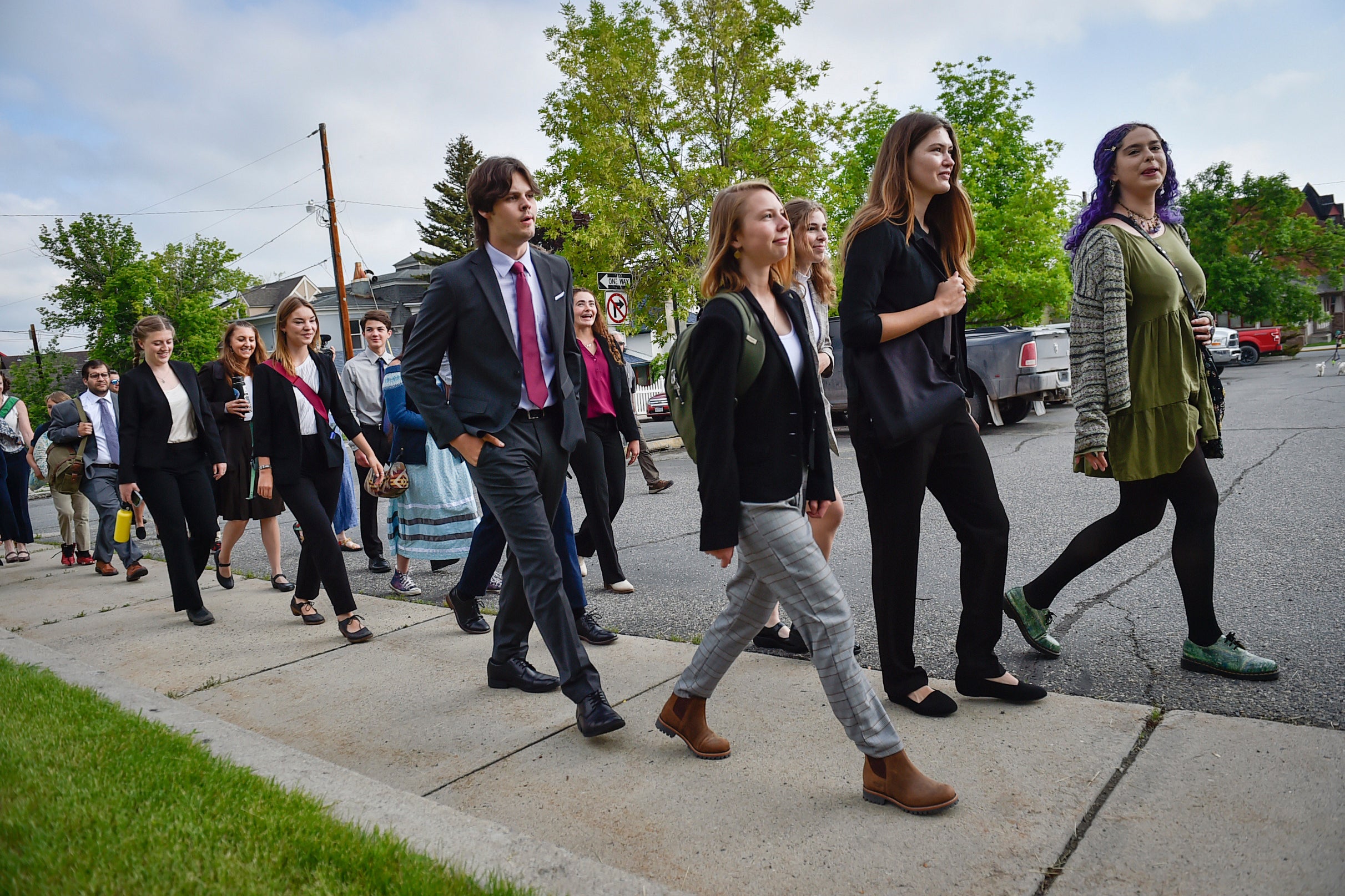Young activists who won Montana climate case want to stop power plant on Yellowstone River
Young environmental activists who won a landmark climate change case are trying to persuade the Montana Supreme Court to stop a natural gas power plant being built on the banks of the Yellowstone River

Your support helps us to tell the story
From reproductive rights to climate change to Big Tech, The Independent is on the ground when the story is developing. Whether it's investigating the financials of Elon Musk's pro-Trump PAC or producing our latest documentary, 'The A Word', which shines a light on the American women fighting for reproductive rights, we know how important it is to parse out the facts from the messaging.
At such a critical moment in US history, we need reporters on the ground. Your donation allows us to keep sending journalists to speak to both sides of the story.
The Independent is trusted by Americans across the entire political spectrum. And unlike many other quality news outlets, we choose not to lock Americans out of our reporting and analysis with paywalls. We believe quality journalism should be available to everyone, paid for by those who can afford it.
Your support makes all the difference.Fresh off a legal victory earlier this year in a landmark climate change case, a group of young environmental activists is trying to persuade the Montana Supreme Court to stop a natural gas power plant that's being built on the banks of the Yellowstone River.
The 16 activists said in a court brief filed Tuesday that the air quality permit for the plant near Laurel in south-central Montana should be declared invalid or at least suspended until the state's appeal of their climate change case is decided. The brief was in support of two environmental groups that are challenging the permit.
The activists prevailed in August in their yearslong lawsuit against the state for not doing enough to protect them from climate change. They claimed severe wildfires, flooding, drought and other problems spurred by warming temperatures violated their rights under the state constitution to a clean and healthful environment.
A state policy, which the judge in the case declared unconstitutional, did not require officials to consider the effect of greenhouse gas emissions when approving fossil fuel projects.
The ruling in the first-of-its- kind trial in the U.S. added to a small number of legal decisions around the world that have established a government duty to protect citizens from climate change.
In the brief, their attorneys said the young activists have “a unique and significant interest" in making sure new fossil fuel projects like the power plant don't proceed "given the significant harms resulting from additional (greenhouse gas) pollution in Montana.”
The state has filed a notice of appeal of the August climate ruling to the Montana Supreme Court but has not submitted its arguments in the case.
The young plaintiffs said the justices should not wait for their case to be resolved before taking action on the power plant permit. Their attorney also asked that any constitutional climate and environmental issues should be addressed through the climate lawsuit, which was heard at trial, and not the power plant permit case.
The plant is being built to provide energy during times of high demand when prices are high on the open market, NorthWestern Energy said. The company did not oppose the activists' attorneys filing a brief in the case.
“We respect the views of other parties, however, NorthWestern Energy’s obligation is to provide reliable energy service at the most affordable rates possible for our Montana customers,” spokesperson Jo Dee Black said in a statement. “Reliable energy service, especially during the winter, is critical for our customers’ lives.”
District Court Judge Michael Moses in Billings ruled in April that the Montana Department of Environmental Quality illegally granted the permit for the Yellowstone County Generating Station in 2021 because it did not consider the effects of greenhouse gas emissions. In response, the state Legislature updated its Montana Environmental Policy Act to say the agency did not have to consider greenhouse gas emissions unless the federal government began regulating those emissions.
In June, Moses vacated his order that invalidated the air quality permit, partly in response to the new legislation. Construction on the $250 million power plant resumed.
Roger Sullivan, one of the attorneys for the young plaintiffs, said the court's August decision was binding on the Montana Department of Environmental Quality and other agencies when considering fossil fuel-related permits.
“We are hopeful that the Court will find our amicus brief helpful," Sullivan said.